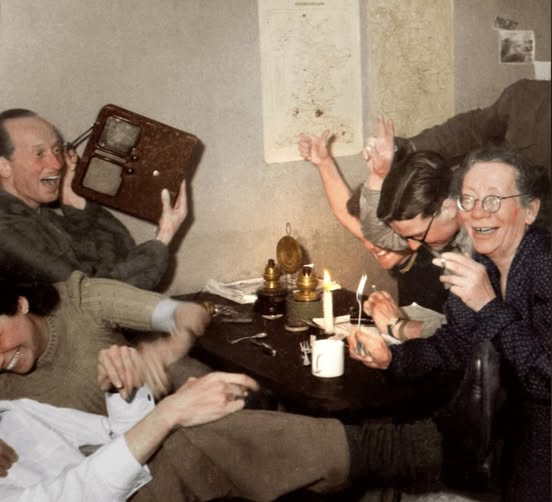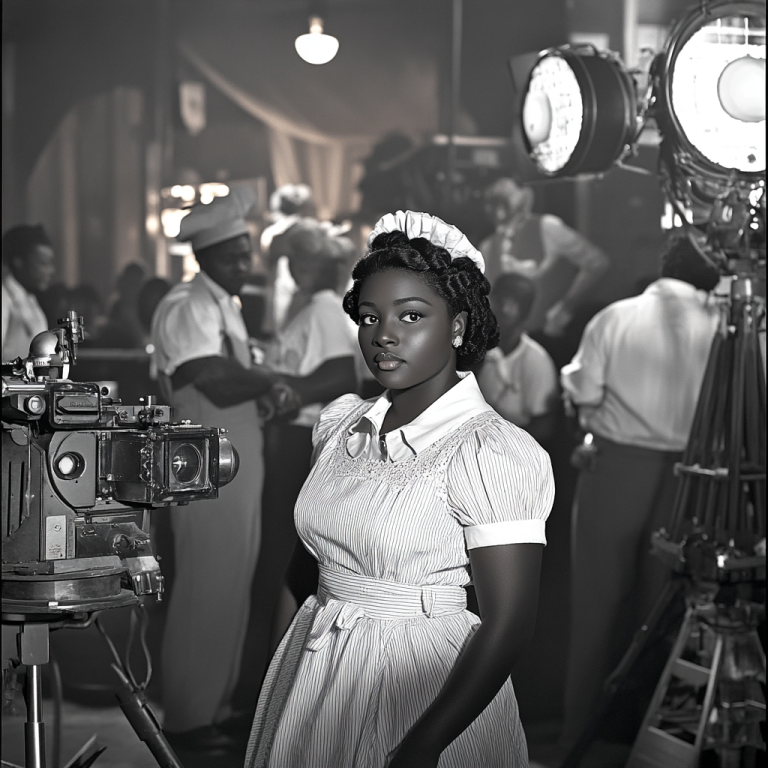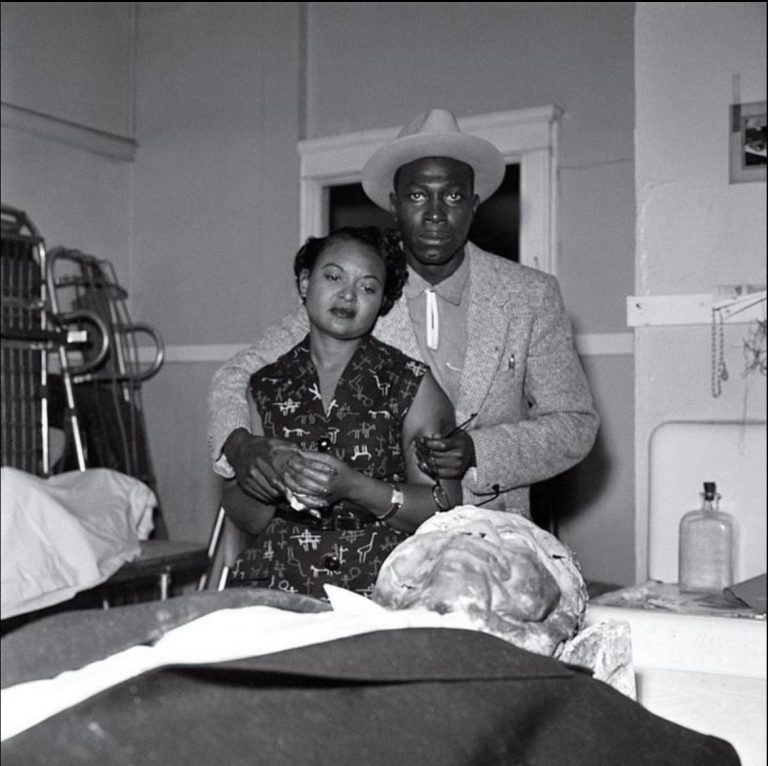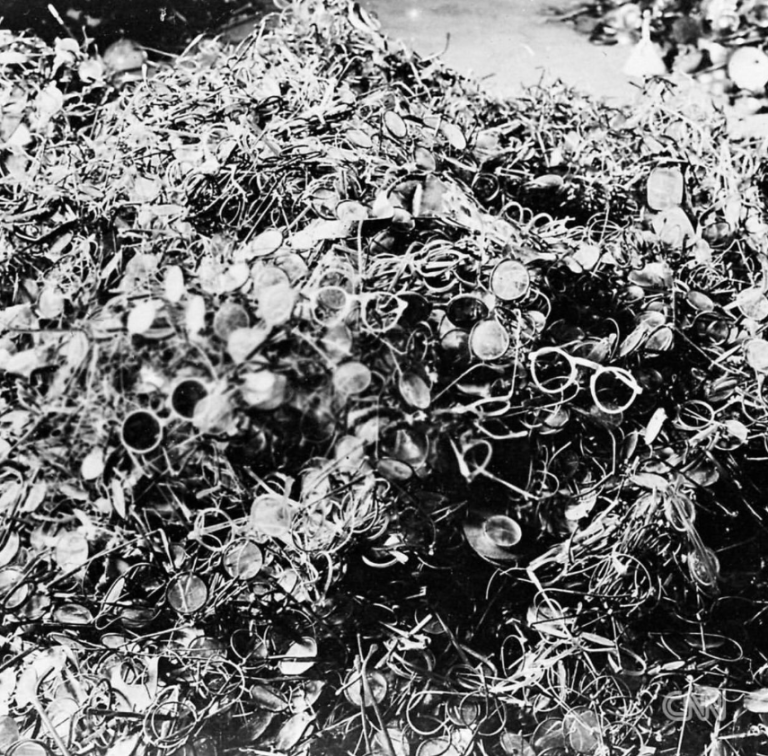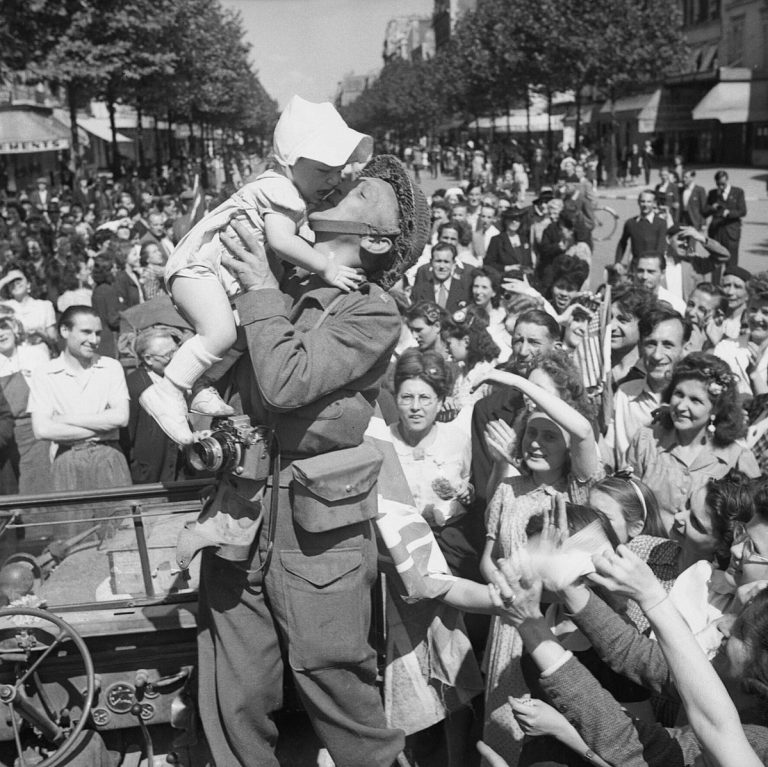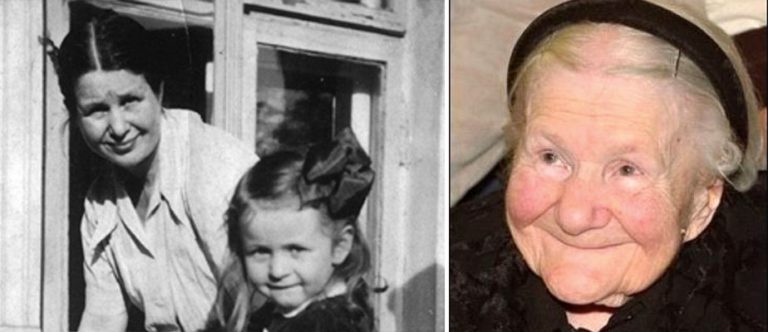The Day Europe Breathed Again – True Stories from the Moment Hitler Died
On April 30, 1945, Adolf Hitler died in his Berlin bunker. The war in Europe would officially end within days. But long before the surrender documents were signed, something else happened—something quieter.
In rooms dimly lit by candles or low lamps, in safehouses and crowded tenements, on battered radios with shaky signals, people across Europe heard the news. And they reacted—not with parades or speeches—but with deep, unfiltered emotion.
Some cried.
Some lit cigarettes with trembling hands.
Some sat motionless.
Others laughed and didn’t know why.
For many, it wasn’t a moment of celebration. It was something closer to exhale after holding their breath for too long. Europe had been at war for nearly six years. Tens of millions had died. Families had been torn apart. Cities bombed. Cultures dismantled. Trust frayed. And now, the man who symbolized that darkness—was gone.
A Candlelit Room in the Netherlands
There’s a photograph often shared online, taken in early May 1945 in the Netherlands. It shows a small group of resistance members huddled around a table. A single candle burns in the center. A man holds a radio close to his face, as if trying to pull the words closer. Another leans back, mouth open in joy. A woman in glasses smokes, smiling wide.
They had just heard that Hitler was dead.
What you can’t see in the photo is what came before it—the hunger, the danger, the years of waiting. The man with the radio may have smuggled it in under his coat. The woman laughing might have buried friends or hidden fugitives. In that room, packed with tension and disbelief, the death of Hitler meant something few outside that moment can fully grasp: survival.
The Sound of the End
The news of Hitler’s death reached the public officially on May 1, 1945, broadcast by Admiral Karl Dönitz, Hitler’s appointed successor. Dönitz announced via German radio:
“Our Führer, Adolf Hitler, has fallen… Fighting to his last breath against Bolshevism, he fell in his command post in the Reich Chancellery.”
Across Europe, people received the message in fragments—through BBC bulletins, intercepted German transmissions, or word of mouth. Some didn’t believe it at first. Hitler’s propaganda had often declared he would never fall, never surrender. Rumors of doubles and escape plans had circulated for years.
But the truth spread. And with it came an emotional wave that swept through homes, prisons, trenches, and occupied cities.
In Paris: The Silence Before the Bells
In Paris, which had been liberated in August 1944, the war was still fresh in memory. Henri Lefevre, a baker who lived near Montmartre, wrote in a journal that day:
“A neighbor came running. ‘Il est mort—Hitler est mort!’ I didn’t believe her. I walked to the church, and the bells were ringing. The last time they rang like that was the day the Germans left.”
Across the city, people emerged cautiously into the streets. There was no parade, no fireworks. Just the sounds of bells, footsteps, and a few people whispering to each other on street corners. Joy was there—but it was quiet, like something too fragile to say out loud.
In Oslo: A Small Room and a Glass of Milk
Norway had suffered five years under Nazi rule. Thousands had been imprisoned. Teachers, clergy, and civil servants had been forced to swear loyalty to Hitler’s regime. Resistance came in many forms—hidden radios, smuggled newspapers, midnight sabotage.
In Oslo, 16-year-old Elise Anderssen sat with her mother and grandmother when the news arrived. She later wrote:
“The radio crackled. I could hardly hear. But I caught the words: ‘Hitler… dead.’ My mother handed me a glass of milk, and I spilled it. I started to laugh, then cry, then both. My grandmother folded her hands. She didn’t speak. Just looked out the window. We didn’t say much after that.”
The war wasn’t over yet for Norway. But in that moment, something shifted—something Elise would remember for the rest of her life.
In Prague: The Moment Became Fire
The reaction in Prague was not quiet. The announcement of Hitler’s death sparked the Prague Uprising, one of the war’s final civilian rebellions. Czech citizens took to the streets. Fighting broke out with German forces still occupying the city.
For some, Hitler’s death was the sign that now—finally—resistance could come into the open. But the cost was high. Over 1,600 Czechs were killed in the uprising. It was a tragic proof that even in death, Hitler’s grip still held.
The World Didn’t Rejoice at Once
It’s important to remember: many people didn’t feel joy when they heard the news. They felt numbness, fatigue, or disbelief. For prisoners in Nazi camps, like Bergen-Belsen, where thousands were dying from typhus, news meant little without food, medicine, or liberation.
In Theresienstadt, the Red Cross arrived just days later to find horrific conditions. Some survivors were too weak to understand that the war was ending.
For soldiers in Italy and Austria, for resistance fighters still being hunted, the news offered no immediate safety. Deaths continued in the days that followed. Surrender was still being negotiated. Chaos reigned in many places.
What Hitler’s Death Meant to Ordinary People
To many, the death of Adolf Hitler didn’t mean victory. It meant relief.
It meant survival.
It meant that the fear they had carried for years could finally loosen its grip.
Here’s what people wrote or said about the moment:
- “We had no champagne, so we drank tea and called it freedom.” – Anna R., London
- “It felt like my father exhaled for the first time in years.” – Jozef M., Kraków
- “I didn’t cheer. I just sat down.” – unnamed Soviet nurse, Vienna
These were not movie endings. They were moments shaped by trauma, grief, and the slow return of hope.
One Candle, One Radio, One Moment
The photo from the Netherlands, now widely circulated, captures just one version of the moment. But it’s enough. It reminds us that history is not only shaped in capitals or by generals. It lives in kitchens, basements, train stations, and farms.
It lives in the hands that turned the radio knob.
In the cigarette lit with shaking fingers.
In the map pinned to the wall behind them.
It lives in the laughter that came too fast, and the tears that came later.
The War Wasn’t Over—But Something Ended
Germany officially surrendered on May 8, 1945. That day would become known as Victory in Europe Day. But for many, it was April 30—the day Hitler died—that marked the psychological turning point.
That was the day the fear began to lift. Not fully, not instantly—but enough for people to look at each other and feel that something had changed.
A Shared, Uneven Breath
Across Europe, there was no single way the news was received. Some danced. Some prayed. Some stood in silence. Some got drunk. Others sat alone.
But what united them was this: they had survived long enough to hear it.
And whether they marked it with a smile, a tear, a prayer, or just a long breath—they knew the world would never be the same.
This was the day Europe breathed again.
Not with celebration.
But with something older, deeper, and much more human.
Relief.
